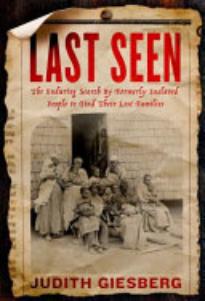2018 School Spending Survey Report
Last Seen: The Enduring Search by Formerly Enslaved People To Find Their Lost Families
COPY ISBN
 The Second Middle Passage, the transportation of enslaved people from one U.S. state to another, forcibly separated families, relocating siblings, parents, children, and spouses across multiple states. The arduous task of locating loved ones who had often not been seen for decades began after the defeat of the Confederacy. Ads placed in newspapers throughout the North and South urgently sought information about long-lost family members. Giesberg (history, Villanova Univ.; Sex and the Civil War) expertly utilizes an archive of thousands of such information-seeking ads published from the end of the Civil War through the 1920s. Many of the stories demonstrate how difficult it could be to locate family members, as searchers tried to remember names, dates, and places. In other instances, people discovered that in the intervening years, their spouses had remarried. While a few stories have endings where family members were reunited, the vast majority show how the horrors of enslavement and forced migration continued to affect Black families for years after emancipation.
The Second Middle Passage, the transportation of enslaved people from one U.S. state to another, forcibly separated families, relocating siblings, parents, children, and spouses across multiple states. The arduous task of locating loved ones who had often not been seen for decades began after the defeat of the Confederacy. Ads placed in newspapers throughout the North and South urgently sought information about long-lost family members. Giesberg (history, Villanova Univ.; Sex and the Civil War) expertly utilizes an archive of thousands of such information-seeking ads published from the end of the Civil War through the 1920s. Many of the stories demonstrate how difficult it could be to locate family members, as searchers tried to remember names, dates, and places. In other instances, people discovered that in the intervening years, their spouses had remarried. While a few stories have endings where family members were reunited, the vast majority show how the horrors of enslavement and forced migration continued to affect Black families for years after emancipation.
VERDICT Based on a unique set of sources, this heart-wrenching work should be read by all focused on enslavement studies as well as American and Civil War history.
RELATED
ALREADY A SUBSCRIBER? LOG IN
We are currently offering this content for free. Sign up now to activate your personal profile, where you can save articles for future viewing




Comment Policy:
Comment should not be empty !!!